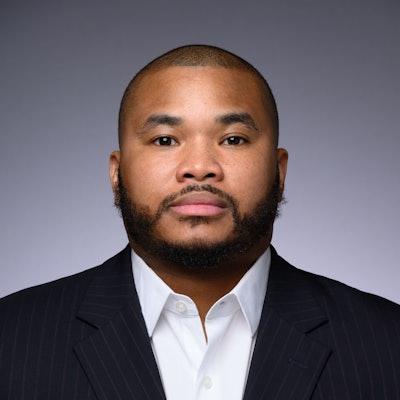Within the academy, the field of higher education, it is not difficult to find examples of racism in the form of micro-incivilities, or implicit bias. This is the case even at our storied Historically Black Colleges and Universities (HBCUs), which are diversifying their workforce with non-Black senior-level administrators and members of the professoriate.
Characteristics of micro-incivilities, as defined by Pearn Kandola, a business-psychology consultancy, are subtle forms of racism, such as: being talked over, having one’s authority undermined, being constantly criticized or nitpicked, and having assumptions made about one’s competency and honesty.  Dr. Adriel A. Hilton
Dr. Adriel A. Hilton
Micro-incivilities are a problem having detrimental impacts on professionals seeking a successful career path in higher education. They often leave these professionals frustrated and discouraged. The reason is the futility of it all, because micro-incivilities are by their very nature subtle and difficult to report. So, instead of staying at one’s university and either adapting to the situation or trying to fight the system, professionals with their inherent commitment to the academy are giving up and looking for employment elsewhere, very often in completely different industries.
Professor Binna Kandola states in his article, How Micro-incivilities Can Impact Wellbeing, “The effort it takes – physical and emotional – to deal with micro-incivilities can lead to burnout, depression and reduced performance. Race–related stress is one of the greatest sources of stress at work.”
Historically, HBCUs have been an oasis for young Black professionals in higher education; a place where they are allowed more intellectual freedom and are encouraged to work on research projects within their field of interest.
I have female friends who have been brought to tears by white administrators who deem their opinions as ill-informed, their research unimportant, and their actions inadequate or incompetent. These administrators frequently show a certain lack of respect for some of my Black colleagues, as if their doctorates are below standard. Likewise, I have known more than a few Black males in the academy who have come up against white administrators and experienced similar treatment.
An Inside Higher Ed article, There Are So Few That Have Made Their Way, discusses the low percentage of Blacks in upper-level positions in higher education, “…less than 8 percent of college administrators are Black or African American, with more than 80 percent being White.”
The article was unequivocal about what led to such dismal numbers: “…not enough Black Ph.D. students, faculty members and entry-level staff members to rise through the ranks and achieve racial parity among the faculty and upper-level administrators.” It fails to mention that micro-incivilities create a lack of opportunity and cause Black staff to leave and find employment elsewhere within the field of higher education (at all institutional types).
I only see this situation, as a vicious cycle. Do I have a solution? No. Am I frustrated? Yes.
Do the current laws against discrimination and oppression make a difference? I do think they have, to a certain degree, as racism would be worse without them.
Does talking about the problems of racism—whether explicit or implicit—help? We can never stop the discussion or this important issue will be forgotten and attitudes will never change.
Is education the answer to stopping the micro-incivilities? From a person who has made higher education his career, I have to believe the experts who say that educating people about racist thoughts and actions is a large part of the solution.
I have hope that the experts are right and that keeping up the good fight against all forms of racism, suppression and inequality will only make us a better society. That said, for me and my fellow Black colleagues in higher education suffering micro-incivilities, the light at the end of the tunnel cannot come soon enough.
Dr. Adriel A. Hilton is Vice-Chancellor for Student Affairs & Enrollment Management at Southern University at New Orleans.



















